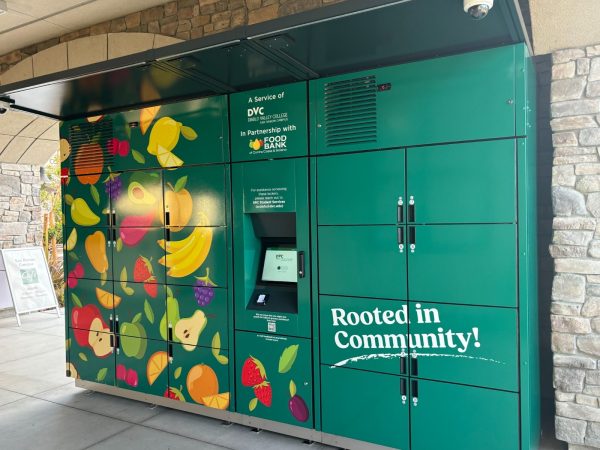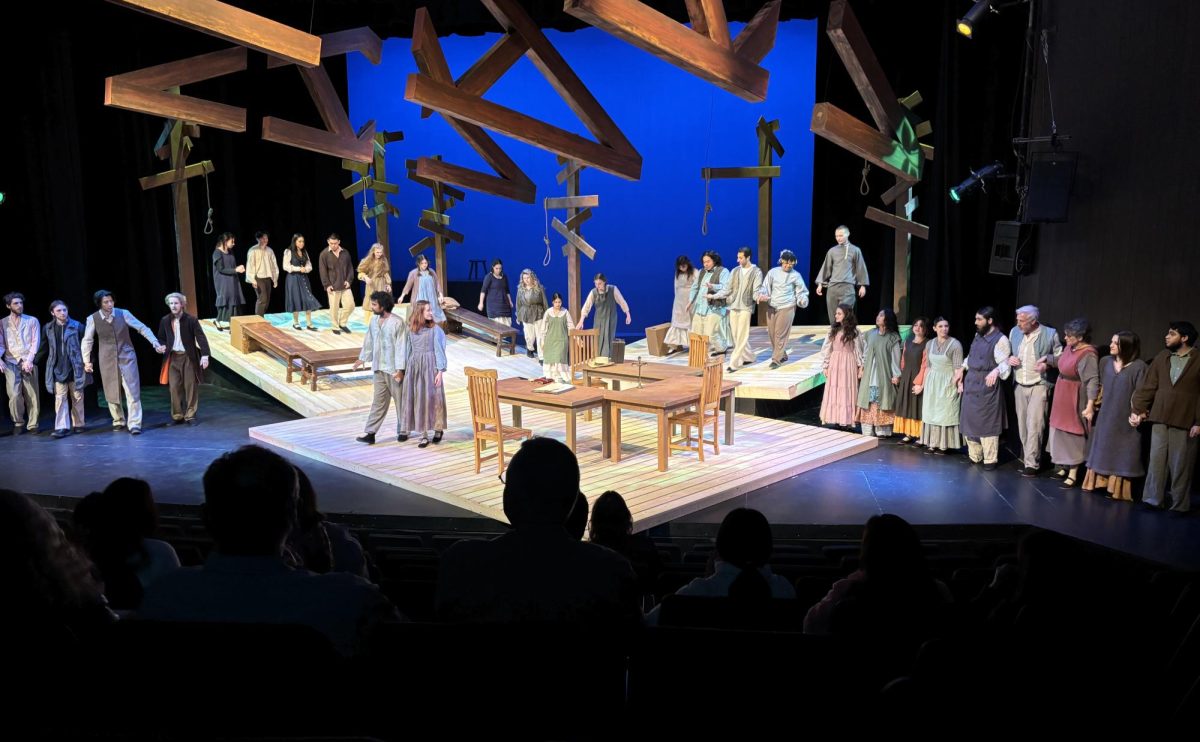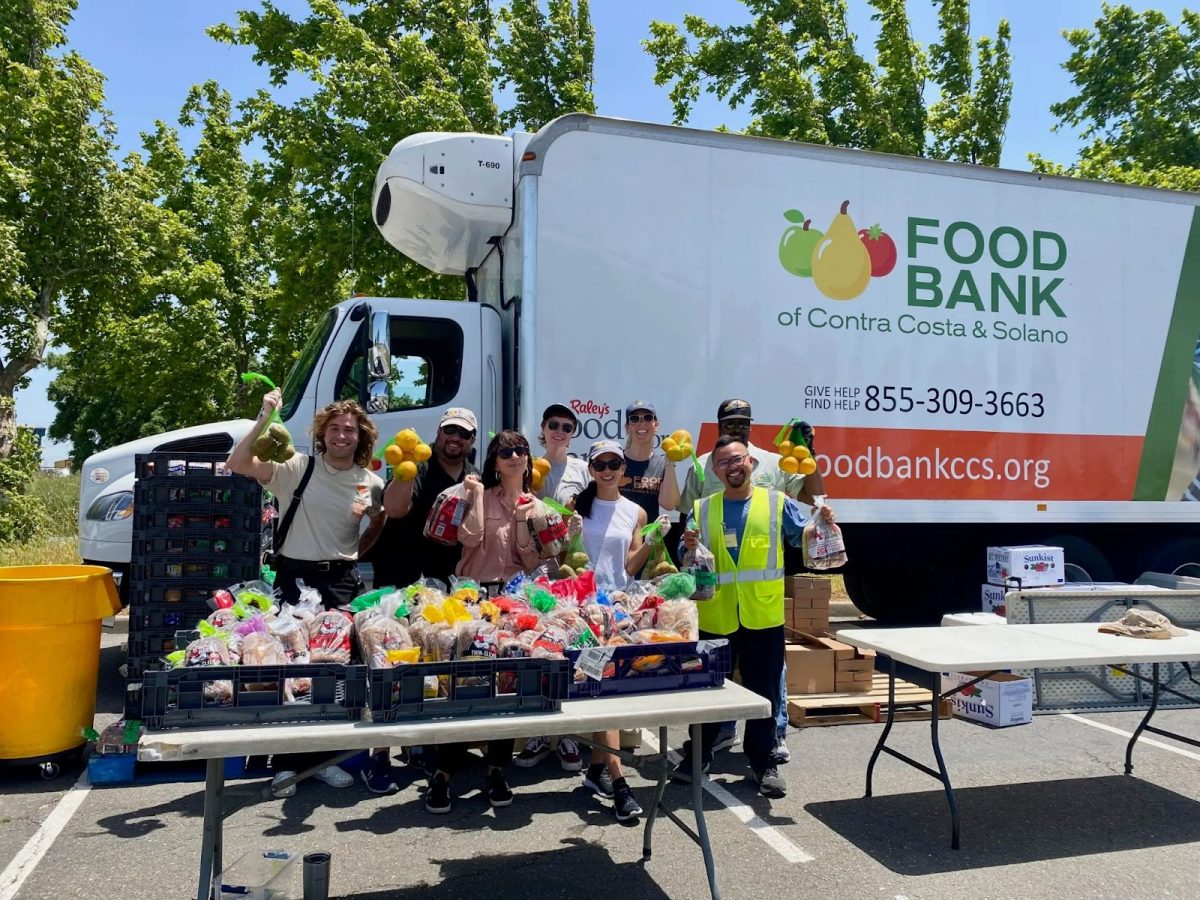For students at Diablo Valley College, balancing school, work, sports, extracurriculars and other personal responsibilities can be a daily struggle. Worrying about food, especially if you’re on a tight budget, can make it even more challenging to focus on classes.
The DVC Food Pantry, in partnership with the Food Bank of Contra Costa & Solano, is committed to filling the gaps. The pantry is a campus resource that provides free groceries to all enrolled students, whereas CalFresh, known for providing food stamps, has eligibility requirements around income and family size.
A 2018 RealCollege survey reported that 68 percent of students enrolled at DVC experienced a form of basic food insecurity. The food pantry opened that same year, and the impact became quickly evident. RealCollege’s follow-up survey in 2023 showed the percentage of students experiencing food insecurity had dropped by almost half, to 36 percent.
There are other factors that may have contributed to the decline, but the food pantry’s presence likely played a key role in alleviating food insecurity. Every semester, the pantry hosts two Free Produce Days, during which the patio of the Student Union becomes a mini-farmers market with a wide selection of fresh produce for students to take home.
At a recent Free Produce Day, some students said the pantry gives them support they didn’t expect they would need.
“I never thought I would need help with food, but the pantry has been a lifesaver,” shared one student, who preferred to remain anonymous. “At first, I felt embarrassed. But now I’m more comfortable knowing it’s here for supporting students.”
Another student at a Free Produce Day anonymously shared their gratitude for the assistance it provided for their family.
“It really helps to fill in those gaps, especially for grocery shopping for my family,” the student said.
Organizers of the counties’ food bank said the goal of their partnership with DVC isn’t just to supply food, but to make sure they are providing goods that students enjoy and that align with their needs.
“The pantry orders food through our agency portal, allowing them to select specific items they know their students need, from snacks to fresh produce,” said JP Contreras, a CalFresh outreach coordinator employed by the Food Bank.
The outreach coordinators also help students apply for programs such as CalFresh, California’s Supplemental Nutrition Assistance Program (SNAP), which gives eligible individuals a monthly electronic benefit card (EBT) that can be used to buy certain food items.
Contreras and Bryan Espinoza, another CalFresh coordinator at the Food Bank, understand the stigma some students feel when applying for programs like these.
“When I was a college student, I struggled with buying groceries myself,” Espinoza said. “I wish I’d known about CalFresh back then.”
On Free Produce Days and Pizza on the Patio days, the workers said they try to deal with students’ misconceptions about the food programs, emphasizing that the resources are there to support students and allow them to focus on school.
“We pass out brochures with general info, and students can text us if they have questions. We want them to feel comfortable,” Contreras said.
Even with all of the outreach efforts, some students still expressed worry that by accepting food aid, they are taking resources away from others who need it more.
But, “that kind of thinking can actually harm the system in the long run,” Contreras added, because “if fewer people use a resource, the funding might be cut in the future, affecting everyone’s access.”
During the COVID-19 pandemic, waivers were in place that expanded accessibility to CalFresh, but many of these allowances have since expired. This has created new obstacles for applicants.
“Now, we often have to look for new eligibility routes for students who may have previously qualified,” Contreras added.
The Food Bank and DVC Food Pantry are committed to helping students find ways to access food even if students don’t qualify for CalFresh’s income requirements. California is enacting new policies that will allow college campuses to accept EBT, giving students still more convenient ways to access free food on campus.

At DVC’s San Ramon Campus, new refrigerated food lockers have been installed as another way to distribute resources at any time and reduce student hunger.
“These lockers enable students to order food directly from the food bank and pick it up at a time that works for them,” said Kelsey Mayeda, the senior program coordinator of student services and basic needs at DVC San Ramon Campus.
“It’s all about making it easier for students to access the help they need,” she said.
The food lockers represent an expansion of the partnership between the Food Bank and college campuses to deal with food insecurity in the county. Food lockers will also be installed at Contra Costa College, Los Medanos College, and the DVC Pleasant Hill Campus is in talks to install lockers as well.
The growing partnerships between the food bank and the DVC Food Pantry have a central goal in mind: to relieve students from having to worry about their next meal. Organizers see state programs like CalFresh not just as a safety net for those students most in need, but as a pivotal opportunity to reduce hunger among students.
As Contreras put it, “These resources are here to support students so they can focus on their education without the stress of wondering where their next meal will come from.







































































